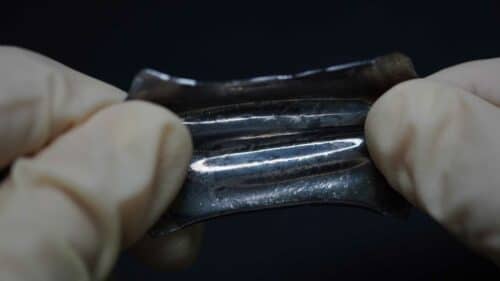Researchers from Japan have invented a stretchable packaging film that protects batteries from atmospheric humidity and gases to enhance battery life

Wearable electronics are exposed to the atmosphere, so it is necessary to protect batteries from moisture and gas to expand battery life. The drawback of conventional batteries is that we still utilize hard batteries that restrict their proper functioning for soft and stretchable electronics. Therefore, a team of researchers at Yokohama National University in Japan has innovated a stretchable packaging film for these batteries with a high gas and moisture barrier that could enhance the working of wearable devices.
“Soft and stretchable batteries have been studied in the world, but they cannot be used in the air due to the high permeability of gas and moisture of the packaging materials of stretchable batteries.” said corresponding author Hiroki Ota of the Department of Mechanical Engineering at Yokohama National University.
The process of manufacturing this flexible film with a high gas barrier is coating with a thin layer of liquid metal onto a gold-plated thermoplastic polyurethane film using the layer-by-layer method. This method allowed the desired deformability, unlike aluminum laminated foils, which were previously used to solve the problem of gas and moisture permeability, but did not provide the necessary flexibility.
Researchers performed experiments that proved the resulting film shows excellent oxygen impermeability under mechanical stress and extremely low moisture permeability. The stretchable lithium-ion battery they assembled in their study could function reliably in the air thanks to the stretchable gas barrier film they developed.
The researchers aim to improve the film’s humidity and protective ability by modifying the materials. Furthermore, they plan to improve the stability of battery performance, even during deformation, by developing materials more suitable for their parts. Making the film cost-effective will also contribute to eventual scalability. This provides a wide range of applications of such batteries like in sensors that could monitor various biomarkers, drug delivery devices, medical devices, and more.
Click here for the Published Research Paper







